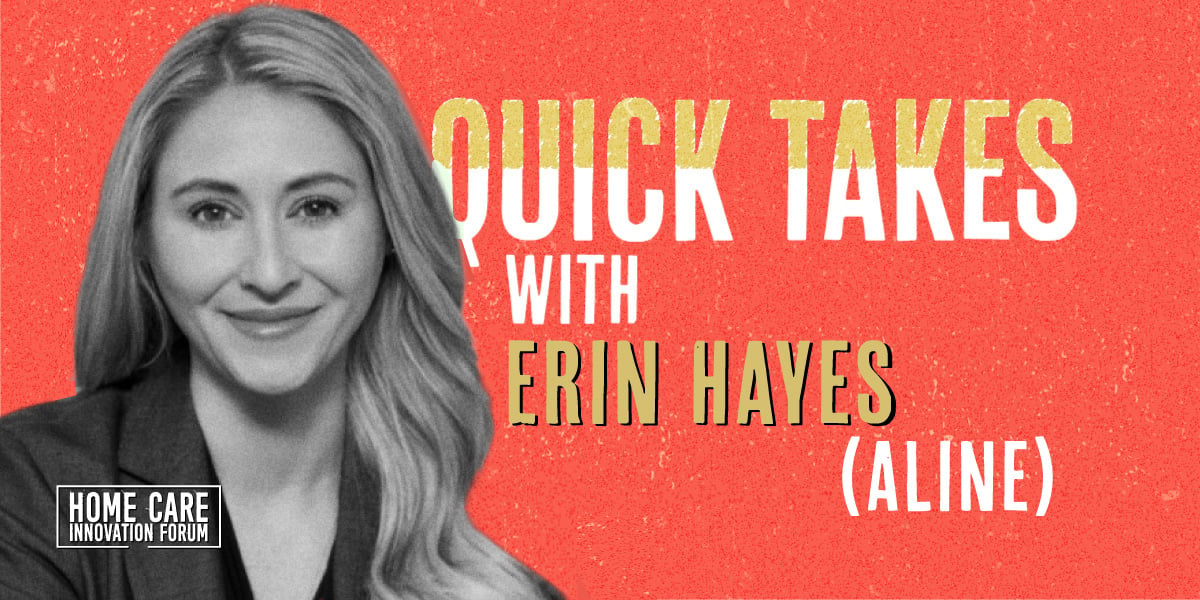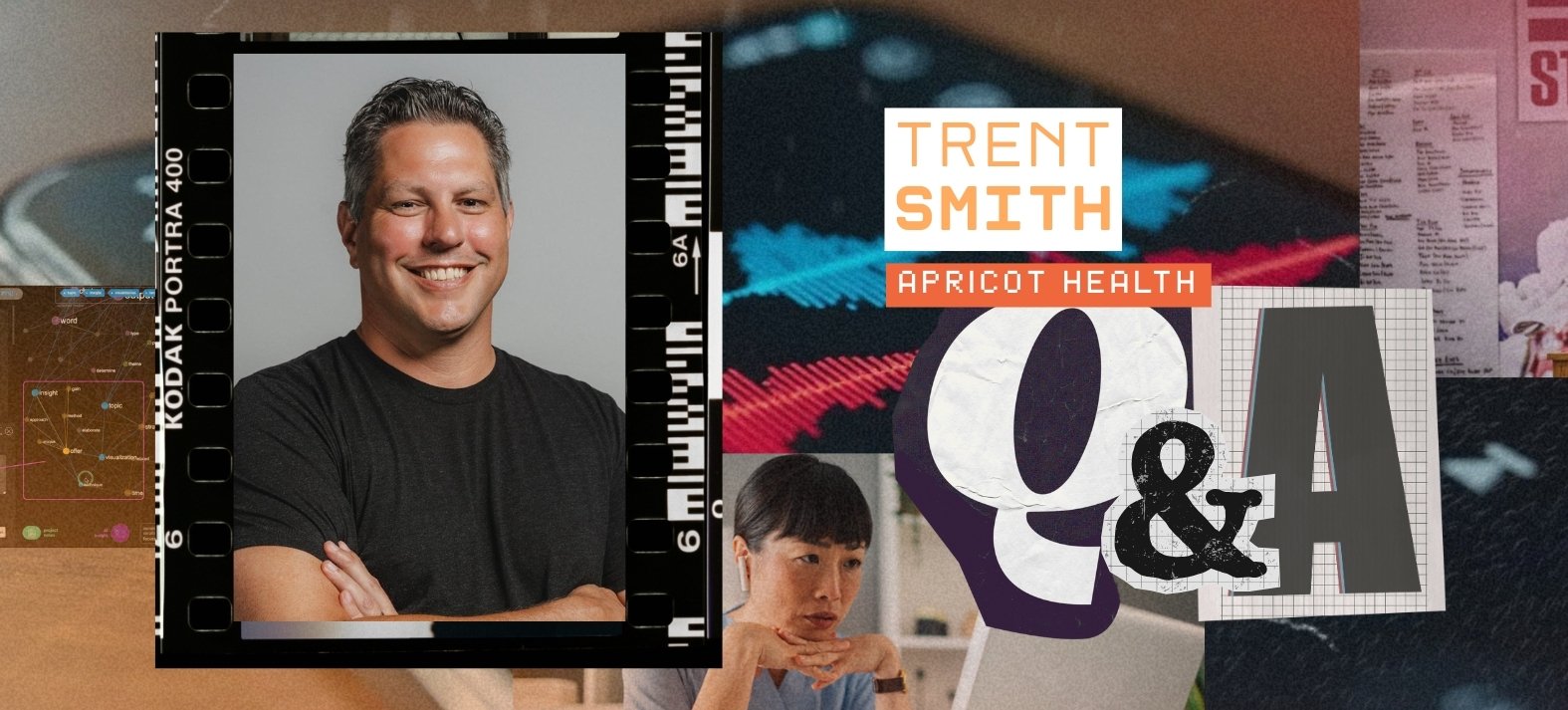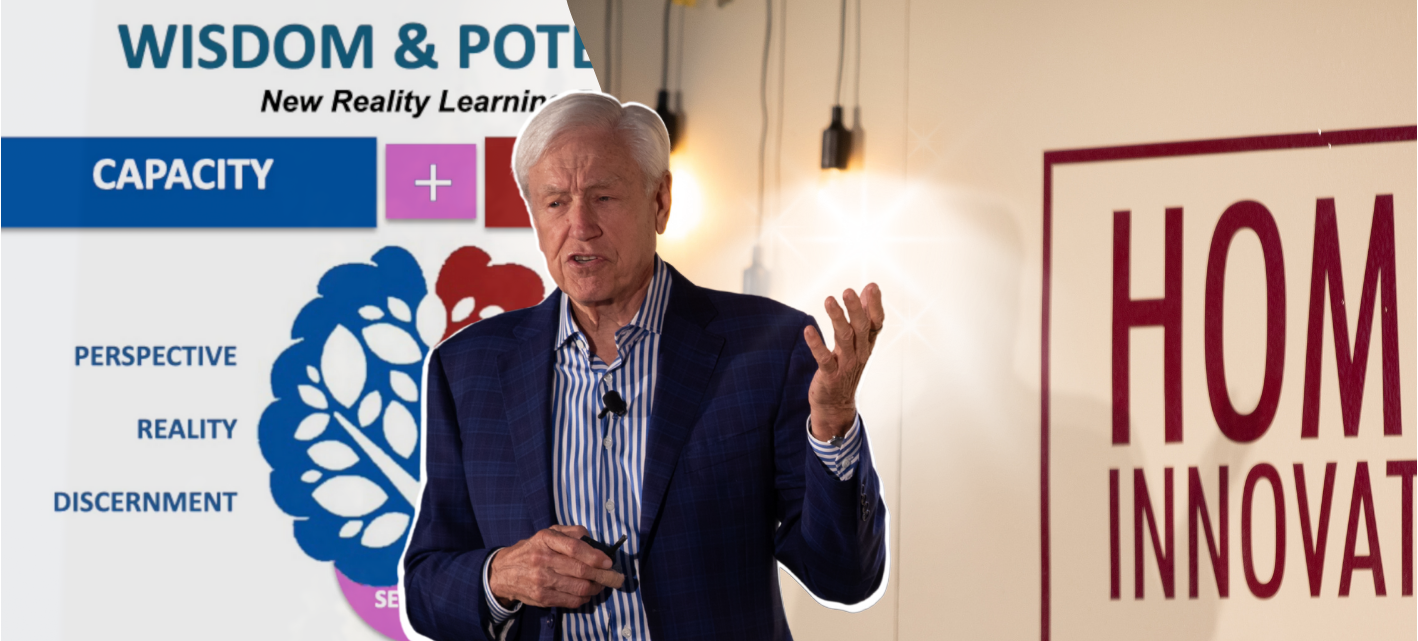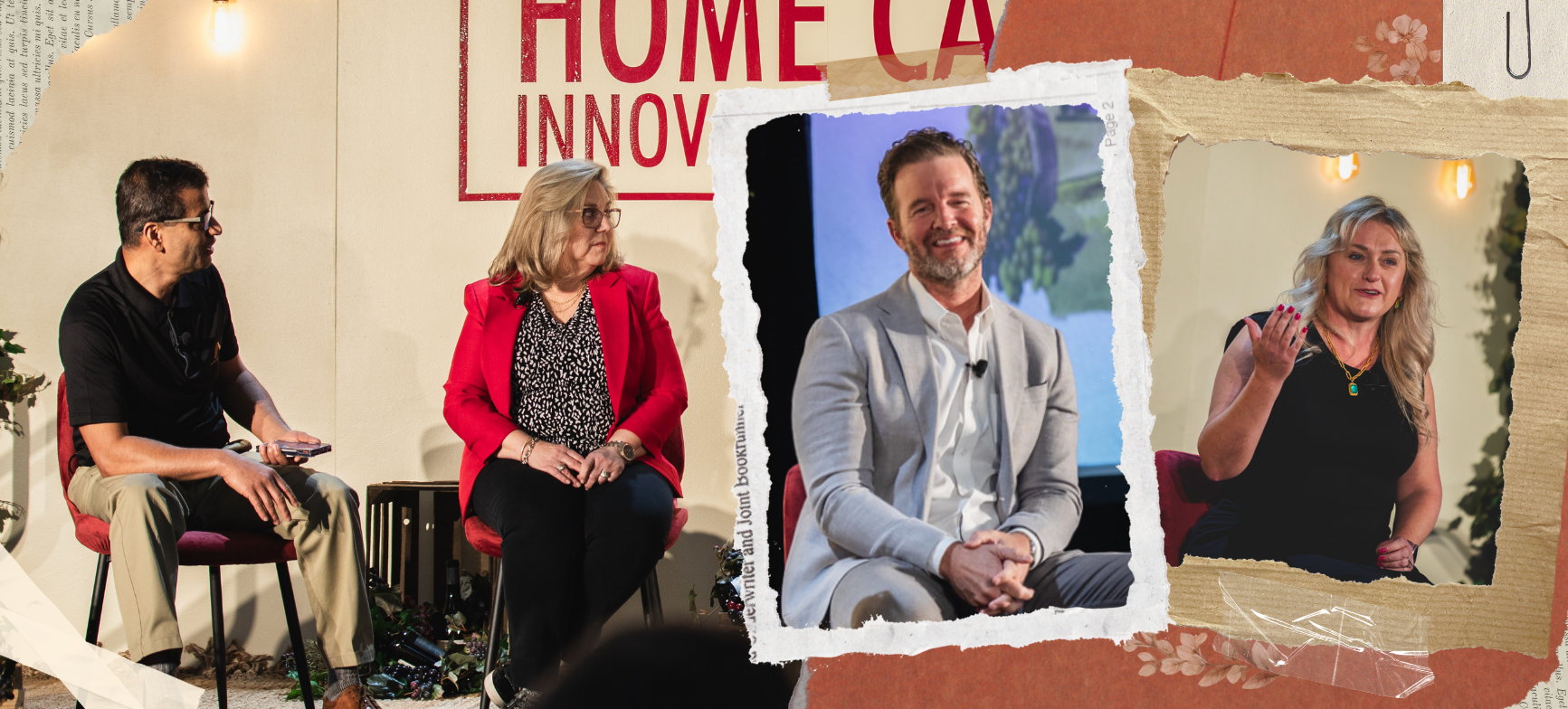Erin Hayes remembers when her mother was searching for the right senior living setting for her grandmother, finding it challenging to get someone on the phone to answer questions. Although frustrating, the challenge turned into an unforeseen opportunity.
Erin had a background in business and finance, working at Lockheed Martin and focusing on the financial analysis of various NASA programs. Lucas Hayes, her husband, worked in commercial real estate.
In a way, their skill sets were a perfect match to launch something new.
“We realized that senior living communities and similar organizations, like home health agencies, faced similar (lack of communication) challenges,” Erin said. “The sales and admissions departments were typically understaffed, making it difficult to handle incoming calls effectively. So, we adopted that call center model and applied it to senior housing, offering services on behalf of senior living communities.”
Enquire Solutions was born, a CRM, marketing automation platform, and contact center solution for senior living, post-acute, and healthcare organizations. In early May, Enquire and two other companies merged to form Aline, a comprehensive software and services supplier to the senior housing and home health care industries.
The Home Care Innovation Forum (HCIF) sat down with Erin, now President of Aline, to discuss the company's unique products and services.
The below transcript of our discussion has been edited for length and clarity.
Briefly take me through the growth of Enquire.
HAYES: Initially, we provided our solutions to various senior care verticals. Many of our clients offered not only assisted living and memory care but also skilled nursing, home health, and hospice services. We even had services for independent living units, providing assistance with activities of daily living (ADLs). So, we covered the entire spectrum, from active adult communities to hospice care.
We adapted our technology to align with the specific workflows for each level of care. That allowed us to provide customized solutions for every aspect of senior care.
As we grew, we started working with non-profit organizations that offered multiple levels of care, as well as health systems. We expanded our offerings to include a contact center and a CRM system that worked in tandem to facilitate communication with onsite staff.
How do your referral services assist hospice/home health providers in gaining more clients?
HAYES: From my experience, senior living communities appreciate having hospice care primarily because it provides them with an additional set of hands within the community to assist residents. They often form partnerships, by having their own hospice services or by collaborating with third-party providers.
In order to be a reliable hospice partner, it's crucial to have the necessary technology to efficiently handle referrals from these partnerships. This enables prompt responses to meet the needs of residents and maintains a well-organized system. We have invested significant effort in developing a referral management system that allows for swift capture of referrals, whether they come in through phone calls, electronically, or even through our online portal, which seamlessly integrates with our CRM system. By minimizing any potential miscommunication, we ensure a positive experience for both clients and the residents they serve.
The use of technology, particularly a robust referral management system and a comprehensive CRM, allows hospice care providers to track their outreach efforts to potential and current partners, establish workflows, and automate processes. This helps them prioritize their accounts effectively, ensuring nothing falls through the cracks, considering the multitude of potential partnerships available. By leveraging accurate data and efficient technology to deliver quick and reliable service to clients, success can be achieved more easily.
How does your marketing software help enhance an operator's ability to market their services?
HAYES: A marketing program should be fully integrated with the sales program because it goes hand in hand. This is especially crucial in the current context of staffing shortages, which is a well-known challenge. Automation can effectively complement the full-time employees within an organization, allowing key employees to focus on high-value tasks while technology assists in other areas.
From a marketing perspective, when it's seamlessly integrated with sales, it can enhance the touchpoints that a salesperson may have previously handled or potentially overlooked. This ensures that the right information is provided at the right time, which can be a struggle.
For instance, when a referral enters the sales database, it can seamlessly flow into the marketing system, where nurturing campaigns can begin. This means that even if the potential client is waiting or not yet ready to proceed, they receive valuable content without requiring direct involvement from a salesperson.
I believe that our marketing automation solutions contribute to acquiring new clients through targeted campaigns and facilitate exceptional experiences that encourage repeat business. By ensuring a positive end-to-end journey, clients are more likely to return and become loyal customers.
Switching to home care, how do your tech solutions help operators hold onto their clients as well as increase outcomes?
HAYES: Private duty home care provides assisted living services within the comfort of one's own home, allowing individuals to age in place instead of moving to a senior living facility. Because there is no physical relocation involved, the barrier to switching home care providers is relatively lower compared to transitioning between different living arrangements. Consequently, ongoing marketing efforts and maintaining strong relationships with customers become crucial in the home care industry.
Home care providers heavily rely on referrals from friends and families of their existing clients. Therefore, it's vital to ensure consistent and effective communication with clients. This is where marketing automation can be a valuable supplement. By utilizing a solid database, providers can establish workflows within their CRM system that facilitate appropriate touchpoints and enable sending information via email or text messaging. Our marketing automation even extends to text messaging, allowing periodic surveys, informational updates, event invitations, or scheduling phone calls to proactively address any concerns.
Taking a proactive approach rather than waiting for dissatisfaction to arise can significantly enhance customer satisfaction. Having a robust database is essential for the successful implementation of these strategies. Home care providers rely on CRMs or similar technologies to effectively manage their clients, including their family members. This goes beyond care and scheduling; it’s relationship management. Tech advancements have significantly improved efficiency and customer service in the home care industry, empowering providers to offer personalized care and maintain strong relationships with their clients and their families.
What innovative or new ideas/services are in your pipeline?
HAYES: Regarding home health, referrals often come from hospitals. We receive automated Electronic Access Claims through systems like Allscripts. This automated process is highly beneficial for home health agencies operating in various zip codes or with multiple agencies covering different areas. For example, if a referral comes in for a specific city, but there are five agencies capable of handling it, our system can identify the patient's zip code and direct the referral to the appropriate agency. This saves a significant amount of time in handling the referral and ensures proper distribution.
In addition to streamlining the referral process, we are developing a dashboard that will help qualify or disqualify referrals. By analyzing data, we can highlight specific keywords that indicate whether a referral aligns with our clinical criteria. For instance, certain keywords may fall under a red category, indicating a referral we wouldn't accept, while others may be green, indicating a referral we would accept without hesitation. We also leverage AI to read eFax referrals from hospitals, which are then electronically imported into the CRM. These predictive analytics, combined with AI technology, allow us to assess referrals more efficiently and provide insights on the next steps to take.
Speed is crucial in the home health sector, so being able to quickly evaluate and qualify referrals is essential. Our goal is to ensure that nothing slips through the cracks, such as a faxed referral that goes unnoticed but could have been a valuable patient for us to serve.
On the home care side, particularly private duty, the focus is more on maintaining relationships and automating processes to efficiently manage our clientele. We aim to reduce manual tasks and leverage automation to streamline communication. Features such as click-to-call and text messaging facilitate efficient outreach and help form partnerships. Additionally, we are enhancing our system to automate logging activities, allowing caregivers to spend less time on administrative tasks and more time building relationships while still capturing essential data.
What sets you apart from your competitors?
HAYES: One of the key factors that sets us apart is our origin. We started with a strong foundation in sales and marketing, which gives us a unique perspective in the industry. Many other companies initially focused on the clinical side and scheduling, with sales and marketing being an afterthought. However, as the industry grew and competition intensified, there was a realization of the need to be more strategic and proactive in acquiring and retaining customers.
In healthcare, particularly with the increasing demand driven by the "silver tsunami," there has been a surge of interest from investors and private equity firms. This heightened competition prompted organizations to think innovatively and explore creative methods for customer acquisition and retention.
In contrast, older systems often suffer from outdated technology, making it challenging to innovate and keep pace with the evolving market demands. Our technology, built on a newer SaaS model, enables us to deliver a seamless sales and marketing experience, which is crucial in today's landscape.
One of the key advantages of our flexible system is its ability to integrate seamlessly with various platforms, allowing for real-time referrals to be converted into a digital format. This integration capability is particularly valuable for organizations offering clinical or competing solutions. As a neutral referral management system, we can connect with any EMR clinical system and establish connections with multiple hospital systems. This versatility enables us to integrate with virtually anything, providing a significant advantage for our clients.
Posted by
Join us!
The retreat for home health care and hospice leaders innovators.
May 17-19, 2026 | Palm Springs, CA




-2.png)


-2.png)


Comments